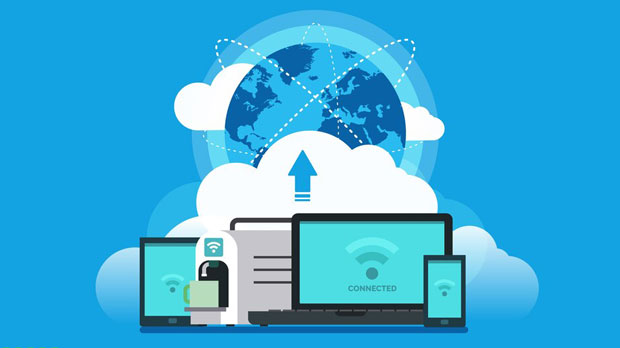When deploying proxy servers within a corporate or school network environment, ease of installation, configuration, and maintenance is paramount. Proxy sites serve as a critical tool for bypassing network restrictions, improving security, and enhancing network performance. However, not all proxy solutions are created equal. In this article, we will compare two proxy solutions— PYPROXY and TamilMV proxy sites—by examining their deployment convenience in corporate and educational network settings. The comparison will focus on installation processes, compatibility, maintenance requirements, and scalability, all of which are crucial for administrators in charge of setting up and managing proxy services. Ultimately, this comparison aims to provide valuable insights to help businesses and educational institutions make informed decisions when selecting a proxy solution. 1. Overview of PyProxy and TamilMV Proxy SitesBefore diving into a detailed analysis, let's briefly understand what PyProxy and TamilMV proxy sites are and their general purposes.PyProxy is an open-source proxy server designed to provide anonymity and unblock restricted content, often used by individuals seeking to bypass content filters. It is lightweight, relatively easy to configure, and can be deployed on various systems. PyProxy is often favored by users seeking a straightforward proxy service for private use or in smaller network environments.On the other hand, TamilMV proxy sites are a collection of proxy servers typically aimed at providing access to specific content, such as media streaming and downloading. These sites often focus on bypassing content restrictions imposed by certain networks or geographical regions, allowing users to access a wide range of entertainment material. While TamilMV proxies can be helpful in unlocking certain content, they tend to be more specific in their use cases and may require specialized configurations when deployed within larger networks.2. Installation and Configuration: A Side-by-Side ComparisonIn terms of deployment, both PyProxy and TamilMV proxy sites offer different levels of complexity when it comes to installation and configuration. Let's break down the installation process for each.2.1 PyProxy InstallationPyProxy is known for its ease of installation. It is typically installed on a server or machine within the local network and requires minimal configuration for basic functionality. Most of the installation can be completed using simple Python commands, and no deep technical knowledge is required. PyProxy is compatible with various operating systems, including Linux, Windows, and macOS, making it a versatile solution.For a more customized deployment, administrators can modify the source code or integrate additional modules to meet specific organizational needs. PyProxy is well-suited for small to medium-sized networks that require a lightweight proxy without complex requirements.2.2 TamilMV Proxy Sites InstallationTamilMV proxy sites, however, are less straightforward when it comes to installation. Since these proxies are often part of a larger network of servers, configuring them can require specialized knowledge of web hosting and server management. TamilMV proxies may need to be deployed on dedicated servers and often require specific routing and DNS configurations to ensure seamless operation.Additionally, because TamilMV proxy sites focus on bypassing content restrictions for entertainment purposes, their setup may not align with the general needs of corporate or educational networks, which prioritize security and data privacy. Setting up TamilMV proxy servers often involves additional troubleshooting and may require ongoing monitoring to ensure proper functionality.3. Compatibility with Network EnvironmentsIn terms of compatibility, both PyProxy and TamilMV proxy sites can work in various network environments, but their performance and reliability can differ depending on the network structure.3.1 PyProxy CompatibilityPyProxy is a flexible solution and can be integrated into most corporate or school network environments. Its lightweight design means that it does not consume significant network resources, which makes it a good option for environments with limited bandwidth or systems with lower computing power. Moreover, since PyProxy is open-source, it can be customized to suit different use cases. For example, it can be configured to work in conjunction with firewalls and other security tools, making it suitable for environments with strict security protocols.However, administrators must be cautious when deploying PyProxy in very large network environments, as it may not scale as easily as more robust commercial proxy solutions. For larger institutions or organizations with significant traffic, PyProxy may require additional configuration or integration with other network infrastructure components to function optimally.3.2 TamilMV Proxy CompatibilityTamilMV proxies, however, are not as universally compatible as PyProxy. These proxies are often geared towards bypassing region-based content filters and are better suited for specific use cases, such as accessing entertainment media. As such, deploying TamilMV proxy sites in a corporate or educational network may involve challenges related to network security and access control.Additionally, since TamilMV proxies typically operate in a decentralized manner, each proxy server may have unique configurations or access points, requiring more management and customization. In corporate or school environments, where consistency and stability are critical, TamilMV proxy sites may not provide the same level of reliability as PyProxy.4. Maintenance and ScalabilityThe ease of maintaining and scaling a proxy solution is another crucial consideration for any organization.4.1 PyProxy MaintenancePyProxy is relatively easy to maintain due to its open-source nature. Regular updates are available from the community, and administrators can easily apply patches to address security vulnerabilities. Since PyProxy is lightweight, it requires fewer resources, reducing the overall burden on IT staff. It is also easy to monitor, and most issues can be resolved through simple troubleshooting steps.However, scaling PyProxy to support a large number of users can be challenging, as it is not designed for high-traffic environments. For very large networks, administrators may need to deploy multiple instances of PyProxy or incorporate load balancing strategies to ensure optimal performance.4.2 TamilMV Proxy MaintenanceTamilMV proxy sites tend to require more maintenance compared to PyProxy. Due to the nature of content bypassing and the varying configurations of each TamilMV proxy, ongoing adjustments and monitoring are often necessary. Server uptime, DNS configurations, and access points may need to be regularly checked to ensure continuous operation.Moreover, TamilMV proxies are not as flexible in terms of scaling. If the demand for access increases significantly, maintaining consistent performance across multiple users can become difficult. These proxies often require dedicated infrastructure, making them less suitable for larger organizations with complex network needs.5. Conclusion: Which Proxy Is Easier to Deploy?When it comes to deploying proxies in a corporate or school network, PyProxy stands out as the easier and more flexible option. Its lightweight design, ease of installation, and compatibility with various network environments make it a better choice for organizations that need a reliable and low-maintenance proxy solution. On the other hand, TamilMV proxy sites, while useful for accessing specific content, may present more challenges in terms of installation, customization, and scalability. These proxies are more suited to individual users or small-scale setups rather than large-scale institutional deployments.For businesses and educational institutions seeking a hassle-free proxy solution with minimal ongoing maintenance, PyProxy is the clear winner. However, if your organization has specific content access needs and is willing to invest in the infrastructure and maintenance required, TamilMV proxy sites may still be a viable option, albeit with more effort in deployment and management.
Oct 26, 2025



































































